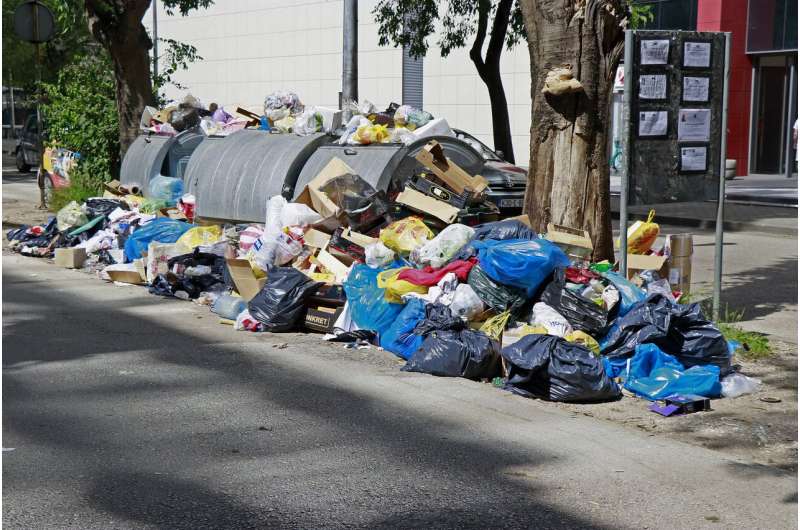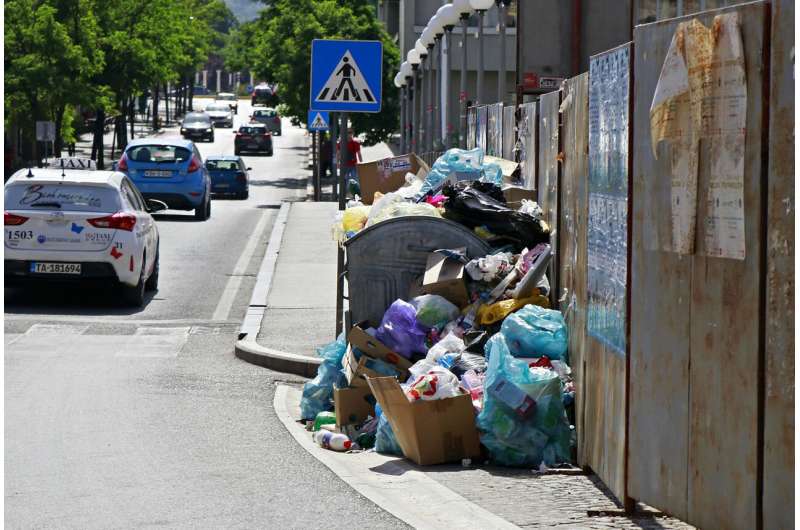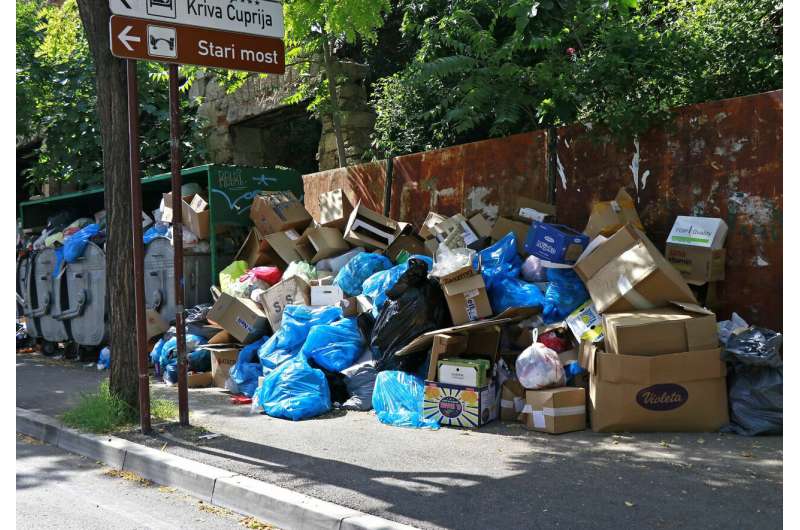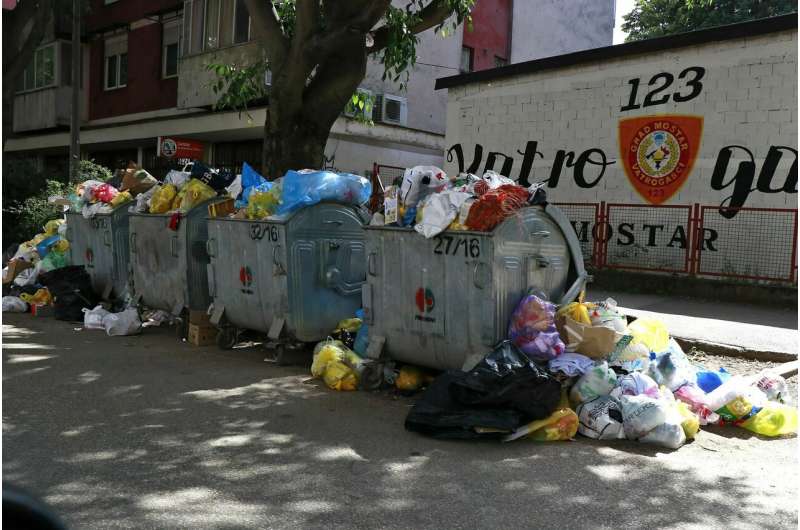In this photo taken on Thursday, June 13, 2019, piles of trash are seen in the streets of Mostar, Bosnia. Uncollected thrash is piling up on the streets of the southern Bosnian city of Mostar - one of the Balkan nation's main tourist destinations - since residents begun blocking access to the city's sole landfill, insisting that it poses serious health and environmental risks. The landfill, located in a residential area, has operated since the 1960s. (Denis Leko/FENA via AP)
Uncollected thrash is piling up on the streets of the southern Bosnian city of Mostar—one of the Balkan nation's main tourist destinations—since residents begun blocking access to the city's only landfill, insisting that it poses serious health and environmental risks.
The landfill, located in a residential area, has operated since the 1960s. It's supposed to be for non-hazardous household waste but protesters say authorities in recent years have allowed businesses to dump hazardous animal and medical waste in it as well as wastewater treatment sludge.
Several hundred protesters started blocking access to the landfill 10 days ago, demanding that it be decontaminated.
The protests were sparked by leaked water treatment test results that reportedly indicated a strong likelihood of dangerous concentrations in the sludge of highly toxic chemical pollutants known as PCBs.
Under pressure from protesters, authorities in Mostar have agreed to send the sludge to be tested for presence of PBCs and other dangerous pollutants in a certified European laboratory. Protesters, however, no longer trust the authorities and say they will keep up their blockade of the landfill until it is decontaminated.
PCBs have been used around the world in, among other things, electrical components and plastics. They are resistant to acids, bases and heat and can remain in the environment for long periods of time. According to the U.S. Environmental Protection Agency, PCBs "have been shown to cause cancer in animals "and are "probable human carcinogens."
-
In this photo taken on Thursday, June 13, 2019, piles of trash are seen in the streets of Mostar, Bosnia. Uncollected thrash is piling up on the streets of the southern Bosnian city of Mostar - one of the Balkan nation's main tourist destinations - since residents begun blocking access to the city's sole landfill, insisting that it poses serious health and environmental risks. The landfill, located in a residential area, has operated since the 1960s. (Denis Leko/FENA via AP)
-
In this photo taken on Thursday, June 13, 2019, piles of trash are seen in the streets of Mostar, Bosnia. Uncollected thrash is piling up on the streets of the southern Bosnian city of Mostar - one of the Balkan nation's main tourist destinations - since residents begun blocking access to the city's sole landfill, insisting that it poses serious health and environmental risks. The landfill, located in a residential area, has operated since the 1960s. (Denis Leko/FENA via AP)
-
In this photo taken on Thursday, June 13, 2019, piles of trash are seen in the streets of Mostar, Bosnia. Uncollected thrash is piling up on the streets of the southern Bosnian city of Mostar - one of the Balkan nation's main tourist destinations - since residents begun blocking access to the city's sole landfill, insisting that it poses serious health and environmental risks. The landfill, located in a residential area, has operated since the 1960s. (Denis Leko/FENA via AP)
In 2004, through the Stockholm Convention, more than 90 countries pledged to phase out and dispose of the large stocks of PCBs.
Environmental activists in Bosnia fear that PCBs and other dangerous pollutants from poorly maintained hazardous waste sites and obsolete industrial plants are being released into Bosnian rivers, including the Neretva River, which runs through Mostar.
The Mostar demonstrations are one of a growing number of environmental protests in Bosnia, which has a poor enforcement record of its environmental protection laws.
© 2019 The Associated Press. All rights reserved.

























